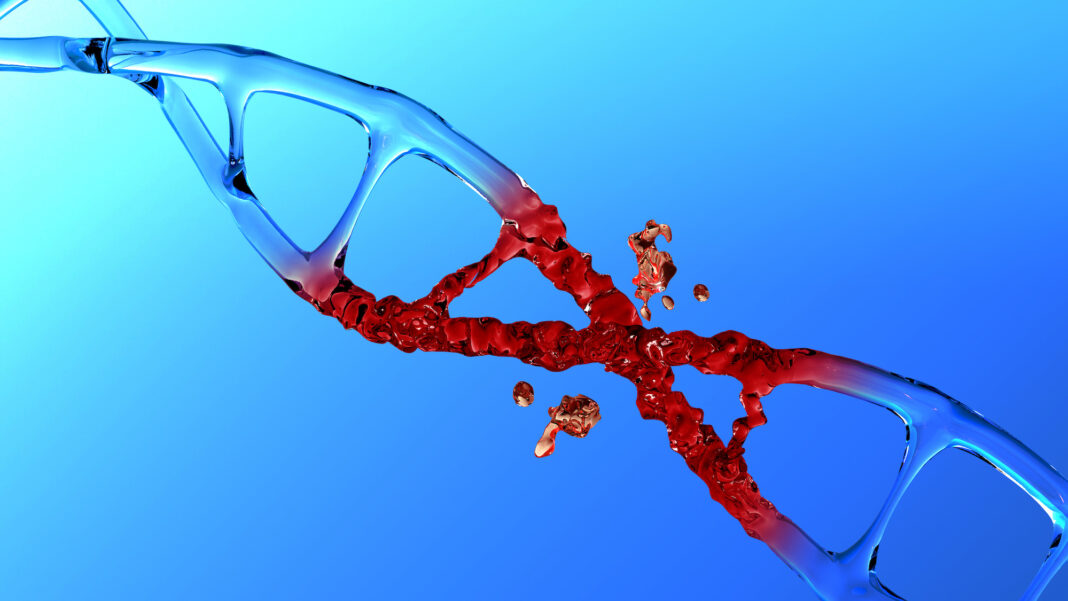In a small clinical trial, Intellia’s NTLA-2002 gene therapy based on CRISPR/Cas9 demonstrated promise in treating hereditary angioedema, a rare genetic condition that causes swelling of the skin, gut lining, and lungs. Researchers found that monthly attacks of rapid swelling, characteristic of angioedemas, were significantly reduced after just one dose, and there were no major safety concerns.
The research article, “CRISPR-Cas9 In Vivo Gene Editing of KLKB1 for Hereditary Angioedema,” was published in the New England Journal of Medicine.
NTLA-2002 shows a dose-dependent effect
Dysregulation of the peptide bradykinin leads to the swelling symptoms of hereditary angioedema. One therapeutic target for angioedema attacks is plasma kallikrein, which activates bradykinin through a cleavage event. There are currently approved inhibitors of plasma kallikrein activity, and there are newer therapeutic approaches that reduce total plasma kallikrein levels through RNA-silencing. However, it is important to note that these treatments require lifelong administration.
The goal of the one-time in vivo gene-editing treatment known as NTLA-2002 is to inactivate the gene that produces plasma prekallikrein (KLKB1), the zymogen for kallikrein. NTLA-2002 uses lipid nanoparticle (LNP) technology to deliver mRNAs encoding the Cas9 endonuclease and a single guide RNA (sgRNA) to target KLKB1, mostly found in hepatocytes.
This study aimed to assess the efficacy, safety, side effects, pharmacodynamics, and pharmacokinetics of NTLA-2002 treatment for hereditary angioedema. To evaluate dose-limiting toxic effects, the Phase I trial was planned to incorporate a maximum of three dose-escalation cohorts and two optional dose-reduction cohorts, each with three to six evaluable patients. Patients were enrolled in New Zealand, the Netherlands, and the United Kingdom.
Doses of 25, 50, and 75 mg of NTLA-2002 were given to three, four, and three patients, respectively. Following NTLA-2002 administration, no dose-limiting toxic effects, major adverse events, or clinically significant laboratory findings were observed. There was a dose-dependent decline in total plasma kallikrein protein levels; the 25-mg group showed a mean percentage change of -67%, the 50-mg group of -84%, and the 75-mg group of -95%.
Angioedema attack frequency decreased by an average of 91% in the 25-mg group, 97% in the 50-mg group, and 80% in the 75-mg group. On average, patients experienced a 95% decrease in monthly angioedema attacks between the first and most recent evaluations.
This research supports NTLA-2002 as a promising new treatment for inherited angioedema, designated as a priority medicine (PRIME) by the European Medicines Agency (EMA) in October 2023. Prospective medicinal products are considered for PRIME designation by the European Medicines Agency (EMA) if they promise to significantly improve upon current treatments or help patients without those options. Intellia plans to begin recruiting patients in the United States for its global pivotal Phase III study as soon as the third quarter of 2024, pending regulatory clearance, according to financial results and highlights from Q3 2023.


